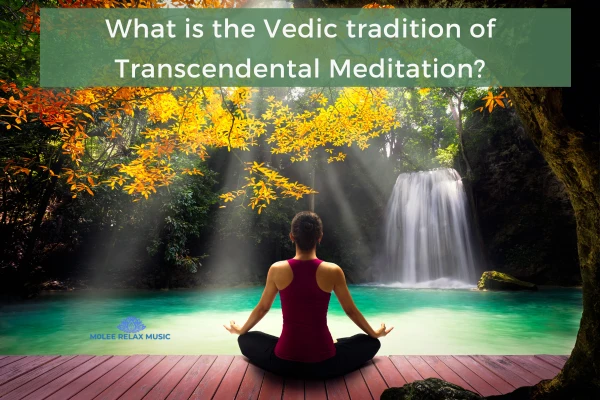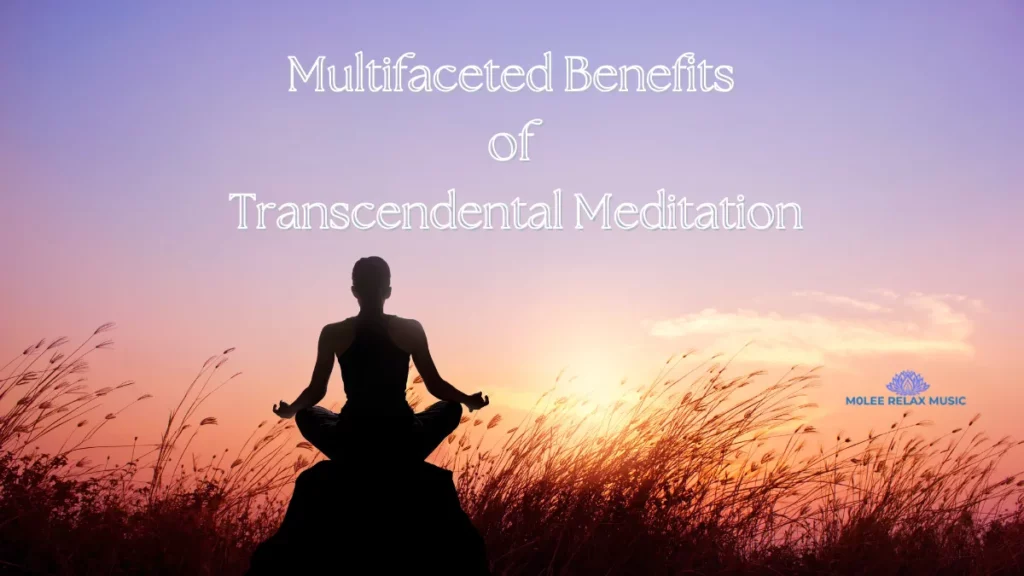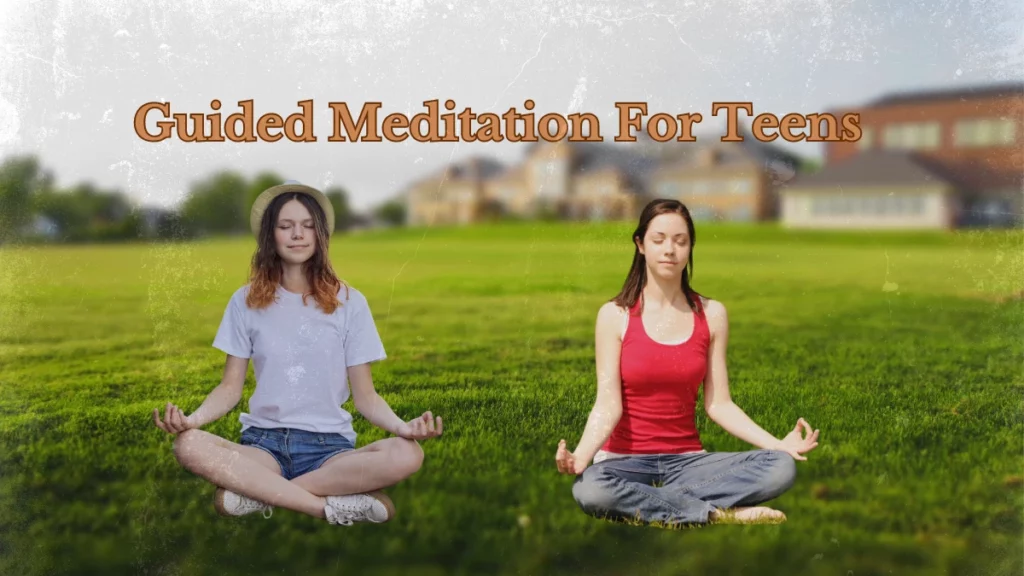|
Getting your Trinity Audio player ready…
|
Imagine you’re living in a fast-paced world, full of hustle and bustle, and you’re in search of a little slice of peace.
Welcome to Transcendental Meditation! This quiet, mantra-based meditation has been winning hearts (and minds!) as a go-to method for finding calm and focus.
The best part? It’s got deep roots in the ancient Vedic tradition, acting like a peaceful island in the ocean of our modern lives.
So let’s discuss the Vedic tradition of Transcendental meditation in this article.
- Vedic tradition of Transcendental Meditation
- What type of meditation is transcendental?
- What are the five transcendental beliefs?
- Is Transcendental Meditation with or without music?
- Which religions are transcendent?
- What religion is Vedic Meditation?
- Myths and Misconceptions About Transcendental Meditation
- Final thoughts on the Vedic tradition of Transcendental meditation
Vedic tradition of Transcendental Meditation
Vedic tradition and Transcendental Meditation – they’re like two peas in a pod.
In this tradition, mantras – special sounds or vibrations – are super important. Here’s the cool part: you get your own, unique mantra from a certified teacher!
It’s kind of like getting a secret password that syncs up with your own personal vibe, helping you dive deep into relaxation and self-awareness.
Picture your mind like a busy highway. Your mantra is like a smooth, quiet side road that guides you away from the traffic of thoughts and towards a tranquil state of consciousness, known as “transcendental consciousness.” In this peaceful state, practitioners often find a special kind of tranquility and wellbeing.
What makes Transcendental Meditation special in the Vedic tradition?
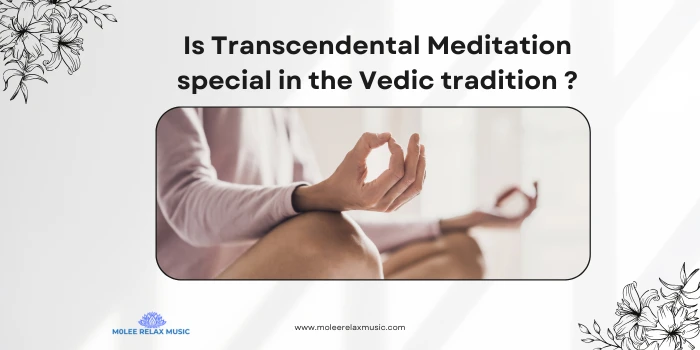
It’s all about the chill! Unlike some meditation styles that need focus or contemplation, Transcendental Meditation is all about effortless relaxation.
You gently repeat your mantra without trying to concentrate on it, allowing your mind to naturally unwind and explore the quiet, expansive realm of pure consciousness. It’s like a peaceful journey inward, minus the travel hassle!
In the Vedic tradition, the use of the mantra holds significant importance. Each practitioner receives a specific mantra from a qualified teacher. This personalized mantra aligns with the individual’s unique vibrations, promoting deeper relaxation and increased self-awareness.
What distinguishes Transcendental Meditation in the Vedic tradition is its non-concentrative nature.
Instead of focusing on the mantra, it is gently repeated, allowing the mind to naturally settle inward, beyond thought, to the silent, unbounded field of pure consciousness. This effortless transition sets it apart from other forms of meditation that often require concentration or contemplation.
What type of meditation is transcendental?
Transcendental Meditation, often fondly abbreviated as TM, is a unique style of meditation. Now, you might be thinking, “Another type of meditation, really?” But trust me, TM stands out from the crowd.
Here’s the scoop: TM is a silent mantra meditation. It’s like having your own personal, secret password that helps you dive deep into a state of peaceful alertness.
But it’s not just about repeating a mantra. It’s about gently and effortlessly allowing your mind to glide into a state of tranquility. No forced concentration, no active thinking. Just simple, easy-going relaxation.
The cherry on top?
It’s all based on the ancient Vedic tradition. But don’t let the “ancient” part fool you.
TM is totally at home in our modern world. It’s like having a piece of timeless wisdom right in your pocket, ready to help you find calm in the chaos whenever you need it.
So, if you’re up for a peaceful, effortless journey inward, Transcendental Meditation might just be your perfect travel buddy!
What are the five transcendental beliefs?
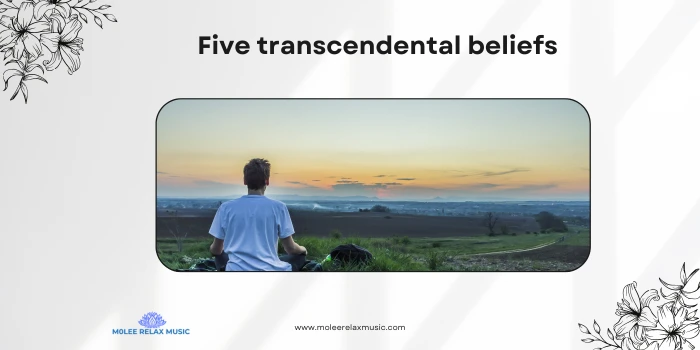
- Inner Divinity: Transcendentalism asserts that each person carries a divine essence within. You’re not just a physical body; you’re a spiritual being too! This belief encourages self-reliance and personal growth, because hey, you’ve got the universe inside you!
- Individualism: Each person is unique and capable of independent thought. In simple terms, be your own person! Transcendentalists value individuality and encourage everyone to think for themselves, rather than just following societal norms.
- Nature’s Importance: Nature isn’t just about trees and animals; it’s a reflection of the divine spirit. So, spending time in nature isn’t just refreshing, it’s a way to connect with your own spiritual essence. It’s like a mini-vacation for your soul!
- Intuition over Intellect: Ever had a gut feeling about something? Transcendentalists would tell you to trust it! They believe that intuition, rather than logic or intellect, is the true path to understanding. It’s like having your own internal compass guiding you through life.
- Self-Reliance and Self-Improvement: Transcendentalists believe that we should always strive to become the best versions of ourselves. So, keep learning, keep growing, and keep striving to be the best “you” you can be. Your journey of self-improvement never really ends, but that’s the beauty of it!
Is Transcendental Meditation with or without music?
You might have a picture in your head of meditation with soothing background music, right?
It’s a common association, but when it comes to Transcendental Meditation, it’s a little different. This form of meditation is typically practiced in silence.
The focus is more on your personal mantra – a special sound or vibration that your meditation teacher will give you. Think of it as your unique, silent tune!
That said, don’t fret if you’re a music lover! While the meditation itself is done in quiet, some people find that listening to calming music before they start their session helps them relax and prepare their mind for meditation.
So, feel free to jam to your favorite relaxing tracks before you dive into your mantra. Remember, Transcendental Meditation is all about what makes you feel most at ease and centered!
Which religions are transcendent?
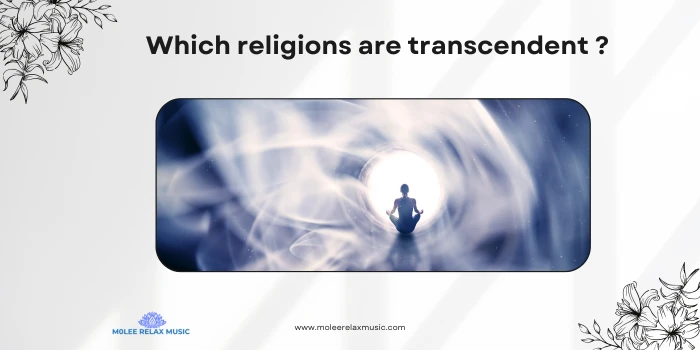
When we talk about transcendent religions, we’re referring to those who believe in a divine power or powers that exist beyond our physical world. They see the divine as something beyond our reach, something we humans can’t fully grasp.
Intriguing, right?
One of the big players in the transcendent religion game is Christianity. Christians believe in God, who exists beyond the human realm. It’s like God is the artist, and the world is His artwork!
Then there’s Islam, another key member of the transcendent religions club. Muslims believe in Allah, who is beyond all human understanding. Imagine a book written in a language no human can understand – that’s how Muslims see the nature of Allah.
And let’s not forget Judaism! Judaism sees God as transcendent too, like a scriptwriter who’s writing the play of the universe, but we can’t see or fully understand.
Then there’s Hinduism, which is a bit of a mix. It has transcendent elements, like the concept of Brahman (the ultimate reality beyond our understanding), but it also has immanent aspects (like the idea of God present in all beings).
So, whether it’s Christianity, Islam, Judaism, or Hinduism, the common thread is belief in a divine power that’s beyond human comprehension.
It’s like each of these religions is a different road, all leading to the same mysterious, awe-inspiring mountain peak that is the transcendent divine!
What religion is Vedic Meditation?
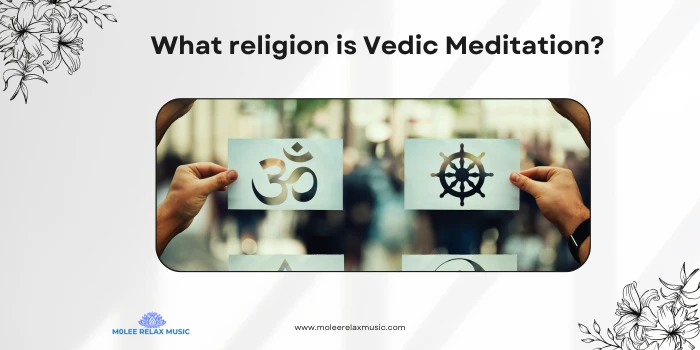
Vedic Meditation, you might assume it’s tied to a specific religion, right? Well, it’s a bit of a mix. Here’s the scoop.
The term “Vedic” refers to the ancient scriptures known as the Vedas, which form the foundation of Hindu philosophy. So, yes, Vedic Meditation has roots in Hinduism, kind of like a tree growing from a seed of ancient wisdom.
But here’s the twist:
when it comes to practicing Vedic Meditation, you don’t need to be a Hindu or follow any specific religious beliefs.
Surprised?
It’s true! Vedic Meditation, including popular techniques like Transcendental Meditation, is designed to be universal. It’s like a recipe for peace and mindfulness that anyone can follow, no matter their religious background.
Think of it as a spiritual exercise more than a religious ritual. It’s about personal growth and discovering inner peace, not adhering to a specific set of religious doctrines.
So, whether you’re a Christian, a Muslim, a Jew, a Hindu, an atheist, or anything else, you can practice Vedic Meditation.
It’s like a universal gym for the mind and spirit, open to everyone!
Myths and Misconceptions About Transcendental Meditation
Despite its popularity, misconceptions persist about Transcendental Meditation. It is neither a religion nor a lifestyle. Instead, it’s a simple, natural technique that anyone can learn and practice to enjoy better health and increased inner peace.
Final thoughts on the Vedic tradition of Transcendental meditation
Transcendental Meditation, grounded in the Vedic tradition, offers a means of accessing inner tranquility and greater self-awareness. As its popularity grows in American society, this ancient technique continues to demonstrate its timeless relevance and utility in the modern world.
Encountering stress and seeking peace? Perhaps, it’s time to explore Transcendental Meditation.
